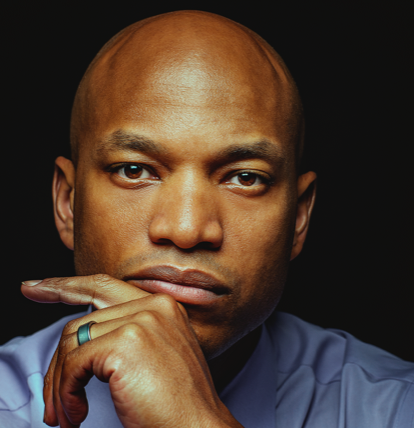Many of the school district leaders who logged in to the virtual District Administration Leadership Institute’s Superintendents Summit this week were likely prepared to be in awe of keynote speaker Wes Moore. As he launched his address, it was immediately clear he is, in fact, in awe of them.
“You can not be thanked enough for what you continue to do under extraordinary circumstances,” he said. “In the past eight months, you have had twin crises thrown at your doorsteps. The virus has wreaked havoc on our communities. We’ve also had a situation where we now have had a racial reckoning inside this country.”
Moore continued: “We’ve watched how these crises have shown themselves. And we’ve watched how in many cases it has been our education system that has been the one to have to deal with them.” After all, our education system is not just a degree-granting entity. It’s the largest food provider, the largest mental health provider and the largest child care provider, he added. “It’s shaped by the leadership that you all show. The supports that you need matter now more than ever.”

Wes Moore is a bestselling author, a combat veteran and a social entrepreneur. His first book, “The Other Wes Moore,” offered a look at the fine line between success and failure in our communities and in ourselves. Growing up in Baltimore and the Bronx and raised by a single mom, Moore faced many challenges. But he graduated Phi Theta Kappa from Valley Forge Military College in 1998 and Phi Beta Kappa from Johns Hopkins University in 2001. He earned an MLitt in International Relations from Oxford University as a Rhodes Scholar in 2004. Wes then served as a captain and paratrooper with the U.S. Army’s 82nd Airborne, including a combat deployment to Afghanistan. He later served as a White House Fellow to Secretary of State Condoleezza Rice. Now he is CEO at Robin Hood, New York City’s largest poverty-fighting organization.
That’s all compared to another young man of the same name and with a similar background who lived a few blocks away—a man who wound up convicted of murder and sentenced to life in prison. “The Other Wes Moore” explores the question of how one Wes Moore’s life took one path and the other Wes Moore’s life looks so different.
To the audience of superintendents, Moore shared how he initially hated the book’s name, which was the decision of marketers at the One World imprint of Random House. One hangup was that no author included his own name in the title of his book. “You’re missing the point,” he was told. “The most important thing about the title of this book is ‘the other’ and the fact that our society is full of others.” These others may have a different family lineage or background, or might be hearing different instructions from different people in their home.
“The truth is, there are Wes Moores that exist in every one of your districts, in every one of your schools, in every one of your neighborhoods,” he told the superintendents, adding that with COVID “the journey for so many of the others have become that much more complicated.”
School district leaders, he empathized, had to figure out ways for education to continue and how to give instructions to teachers and principals while dealing with the personal struggles that were universal as the U.S. shut down in the spring.
But students, of course, need educators and education leaders more than ever. “They need your vision, they need your aggressiveness, they need your care and concern, they need your toughness, they need your humanity, they need your forgiveness, they need your understanding,” he said.
Because so much of the next decade for this generation will be defined by what’s happening these next months, he urged superintendents to exercise their voice. “Conversations about policies can not be done without your voice being heard,” he said. “The reality is, the reason you are so important is because of who you fight for. You fight for the others.”
He had this directive for leaders at this time: “Let’s push. Let’s innovate. Let’s be thoughtful. Let’s be creative. Let’s never stop fighting. Let’s make sure we’re attacking this moment with a belief and sincerity, knowing that progress is not inevitable, nor a setback. Approach this moment with a decree of sincerity and vision.”
Learn how to participate in an upcoming Superintendents Summit.
Superintendents, Moore acknowledged, spend more time than anyone else listening to the concerns of everyone from their executive team and principals to parents and children. “With every single call, every single email, every single outreach, every single cry for support, every single cry for help, our job is to continue to remember who it is we are supposed to be fighting for.”
Moore concluded with another thank-you. “I’m incredibly grateful for what you’re all doing every day,” he said. “No one has been thrown more, has been asked to be more flexible and malleable, no one has been asked to do more with less. … I’m thankful that despite all of these realities, you continue to wake every morning and fight, and go to bed exhausted. It’s needed and appreciated.”
Melissa Ezarik is senior managing editor of DA.

